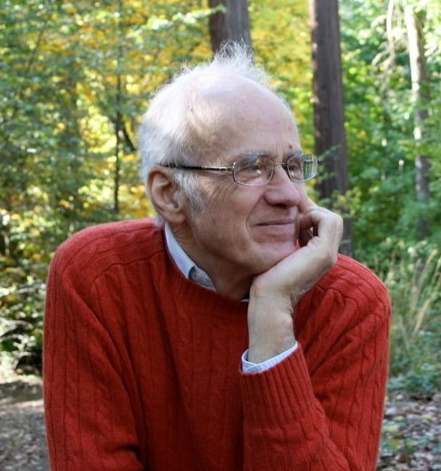It has been three decades since Dr. James Hansen testified to Congress about global warming (followed by The End of Nature, Bill McKibben's book), and what do we have to show for this long period? The Paris Accord, which contained only voluntary aspirational statements with no enforcement mechanisms, pledges that were inadequate even if they were met. (And recently the U.S. withdrew from the Accord.)
The situation is shaping up to be the biggest disaster in human history, yet despite the best efforts of small institutes and alert and imaginative individual scholars, an adequate solution has eluded us.
The question is how to break the logjam. How to respond when most of the dominant U.S. political party is lost in denial? When the prospect is so terrifying as to seem unreal? When the society seems to fear economic disruption more than the end of civilization? It might help to review the question of what makes global warming such a hard issue.
Most obvious is the economic self-interest of fossil-fuel firms. Whatever Adam Smith hoped when he imagined an "invisible hand" that would transform private greed into public good, managers in our system have a fiduciary responsibility not to defend the social interest but to protect investors. Under our system, they are not eager to have their reserves "kept in the ground." They seek to keep stock prices high. And with their hefty cash-flow, they can be generous with "campaign contributions" to politicians.
Despite the efforts of well-funded propaganda institutes devoted to assuring us that some scientists can be found who doubt some aspects of the global-warming scenario, we are rightly reminded of the efforts of the tobacco industry to claim, as long as possible, that we didn't have conclusive evidence that smoking increases the risk of lung disease.
Another aspect of the problem has been the nature and communication of scientific findings. Scientists are taught to be cautious in their interpretation of data. So far, almost all predictions have been exceeded.
And any attempt to integrate findings necessarily lags behind the collection of data, the writing of papers, the peer-review process, publication schedules.
Buy the problem with scientific information is not only caution and delay in data, but also the very terms of scientific discourse about climate. A few hundred parts per million sounds tiny. Degrees of temperature rise also sound insignificent. Who cares, a non-scientist feels, if the temperature may increase by 2, or even 4 degrees?
A fourth aspect is the general sense, however mistaken, that global warming is a problem for another generation. It is a feeling that the children or grandchildren will somehow cope, just as "the greatest generation" had to cope with a world war. Perhaps technologists will come up with a solution.
A fifth and perhaps decisive aspect is that almost all of us now benefit in our daily lives from energy supplied by fossil fuels. We drive cars powered by gasoline. We rely on electricity generated largely by the burning of coal and natural gas. We heat and cool our homes and offices. The goods we buy, including food, are made with the help of fossil fuels. We are all implicated.
So far, we have had mainly warnings, plus some plans for what could be done. But we haven't acted on the plans. How can we move forward?
While one obstacle is denial of human-caused global warming, another is the certainty that it's too late. Some scientists have concluded that "self-reinforcing feedback loops" will defeat any efforts to stop global warming. In other words, we're doomed. As the melting taiga in northern Canada and in Siberia and shallow portions of the arctic sea release methane, as refrigerants leak into the atmosphere, and so forth, it's said to be already too late.
If just crying doom (plus some grief-work), or just waiting, makes certain a terrible outcome, what can we do instead?
Perhaps evolution has not equipped us with the ability to respond to the challenge of global warming. Perhaps the failure of most of our media, and of most of our politicians, will doom us. Perhaps our every-day reminders of the usefulness of fossil fuels will cause us to fear "disruption."
The scope of the challenge is almost overwhelming. While one does not wish to minimize the vast suffering of the entire Second World War, that damage was much less than could be caused by global warming. Observers have hoped for an event as sudden, unexpected, and shocking as the surprise attack on Pearl Harbor, an event that would awaken us.
But like a slowly progressing disease, global warming is insidious: apart from extreme weather that scientists can say is made worse or more frequent or that occurs in new places, warming now mainly is seen to affect ice or coral reefs that few of us ever get near.
(Note: You can view every article as one long page if you sign up as an Advocate Member, or higher).





